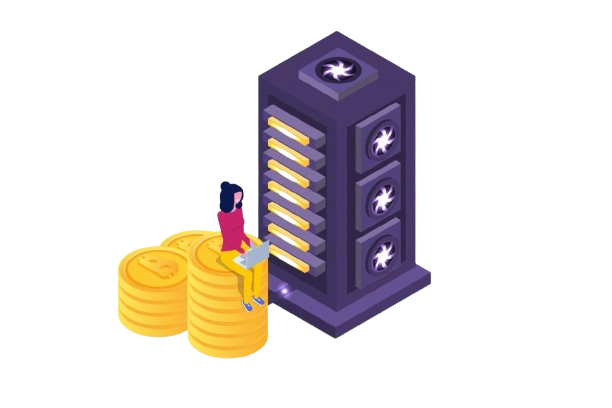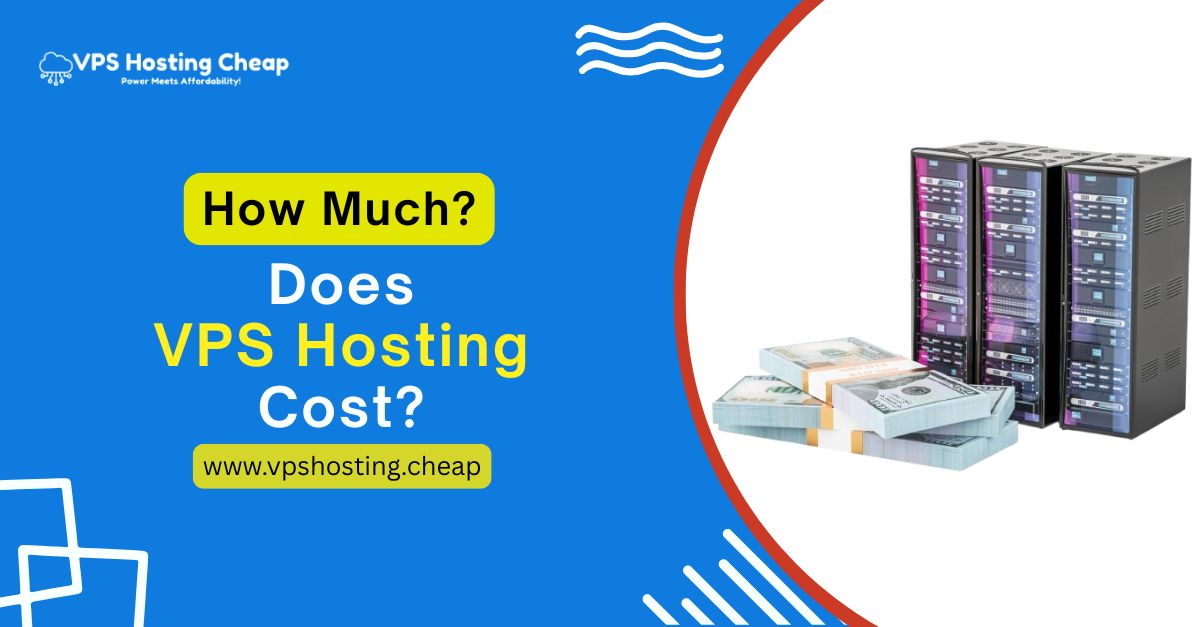Have you ever wondered why VPS hosting prices vary so much?
Some providers offer VPS hosting for as low as a few dollars per month, while others charge hundreds. It can be confusing, especially if you’re unsure what factors influence the cost. But don’t worry! In this article, we’ll break down everything you need to know about VPS hosting pricing so you can make an informed decision.
VPS (Virtual Private Server) hosting is a popular choice for businesses, developers, and website owners who need more power and flexibility than shared hosting but don’t want to pay for an entire dedicated server. But how much does it really cost?
Let’s dive into the details.
Factors Affecting VPS Hosting Costs
When looking at VPS hosting plans, you may notice significant price differences between providers and packages. This is because several factors influence the cost of VPS hosting.
Understanding these factors will help you make a well-informed decision and ensure you’re not paying for features you don’t need while still getting the best value for your investment.

1. Managed vs. Unmanaged VPS
VPS hosting is available in two primary types: Managed and Unmanaged VPS hosting. The choice between these two significantly affects the price you pay.
2. Server Resources (CPU, RAM, Storage, and Bandwidth)
The amount of resources allocated to your VPS plan plays a crucial role in determining its price. Here’s how each resource affects the cost:
3. Location of the Data Center
The geographical location of the server data center also plays a role in VPS pricing. Hosting providers operate data centers in different regions, and prices can vary based on location. Here’s why:
4. Operating System (Linux vs. Windows VPS)
Your choice of operating system can also influence the cost of VPS hosting.
5. Additional Features and Add-ons
Hosting providers offer various add-ons and extra features that can affect pricing. Some common add-ons include:
Understanding these factors will help you choose a VPS hosting plan that fits your budget while still meeting your performance needs.
How Much Does VPS Hosting Cost on Average?
When it comes to VPS hosting, the cost can vary significantly based on multiple factors, such as server specifications, hosting provider, and additional features.
However, to provide a general idea, VPS hosting plans typically fall into three broad pricing categories: low-cost, mid-range, and high-end VPS hosting.

👉 1. Low-Cost VPS Hosting ($5 – $15 per month)
This category is ideal for individuals and small businesses looking for a budget-friendly VPS solution. These plans usually include minimal CPU cores, around 1 to 2 GB RAM, and limited SSD storage (typically 20GB to 50GB). Low-cost VPS hosting is best suited for small websites, blogs, and lightweight applications that don’t require high-performance resources. However, these plans may come with some limitations, such as restricted bandwidth, lower uptime guarantees, and fewer support options.
👉 2. Mid-Range VPS Hosting ($20 – $30 per month)
Mid-range VPS hosting is the most popular choice for growing businesses, e-commerce sites, and developers who require better performance and reliability. These plans usually offer 2 to 4 CPU cores, 4GB to 8GB of RAM, and SSD storage ranging from 50GB to 200GB. Additionally, mid-range plans often come with managed services, enhanced security features, dedicated IP addresses, and better customer support. This category balances affordability and performance, making it an excellent choice for medium-sized projects.
👉 3. High-End VPS Hosting ($30 – $200+ per month)
For enterprises, large-scale applications, and businesses that demand top-tier performance, high-end VPS hosting plans provide powerful specifications. These plans often include 8 to 16 CPU cores, 16GB to 64GB RAM, and massive SSD storage (ranging from 200GB to 1TB). High-end VPS hosting also comes with premium features such as full server management, priority customer support, advanced security options, and high uptime SLAs. This option is best suited for businesses that cannot afford any downtime and require maximum server efficiency.
👉 4. Managed vs. Unmanaged VPS Hosting Costs
Another key factor that impacts VPS pricing is whether the hosting plan is managed or unmanaged.
👉 5. Billing Cycles and Discounts
Many hosting providers offer discounts when users commit to longer billing cycles. For instance, a monthly plan might cost $30, but opting for an annual subscription could bring the cost down to $25 per month. Some providers even offer promotional deals, which further reduce expenses for first-time customers.
👉 6. Additional Costs to Consider
Apart from the base VPS hosting price, there are additional costs that may be required, such as:
By understanding these cost factors, businesses and individuals can select the right VPS hosting plan that fits their budget and requirements. Prices will vary from provider to provider, so it’s always a good idea to compare plans before making a decision.
Want Cheap VPS Hosting? Here’s What You Should Check!
If you’re looking for an affordable VPS hosting plan, I have already written a detailed article on “Cheap VPS Hosting 27th January 2026 | Best Affordable VPS Plan” where I reviewed 11 cheap VPS hosting providers with well-researched insights into their pricing, features, and performance. Be sure to check it out!
FAQ’s – How Much Does VPS Hosting Cost?
1. Is VPS hosting more expensive than shared hosting?
Yes, VPS hosting is more expensive than shared hosting because it provides dedicated resources, better performance, and higher security.
2. Can I get a VPS for free?
Some providers offer free VPS trials, but fully free VPS hosting is rare and usually comes with limitations.
3. How do I choose the right VPS plan for my needs?
Consider factors like traffic volume, required resources (RAM, CPU, storage), budget, and whether you need managed or unmanaged hosting.
4. Does VPS hosting include a domain name?
Most VPS hosting providers do not include a domain name for free. You’ll need to purchase it separately.
5. Which is better: Linux or Windows VPS?
It depends on your needs. Linux is cheaper and widely used for web hosting, while Windows is better for businesses needing Windows-based applications.
6. Is managed VPS worth the extra cost?
If you don’t have technical expertise, managed VPS is worth the cost as it saves time and ensures security and maintenance are handled by professionals.
7. Can I upgrade my VPS plan later?
Yes! Most providers allow you to upgrade your VPS plan as your website grows.
Conclusion – How Much Does VPS Hosting Cost?
VPS hosting costs vary based on several factors, including the type of VPS (managed or unmanaged), server resources, data center location, and additional features. Prices typically range from $3 per month for budget-friendly plans to over $200 for premium VPS hosting. If you’re looking for affordable VPS hosting, make sure to read my detailed article on “Cheap VPS Hosting 27th January 2026 | Best Affordable VPS Plan”, where I’ve reviewed 11 budget-friendly VPS providers to help you find the best one.
I hope this article helped you understand VPS hosting costs better. If you have any questions, feel free to ask in the comments!
